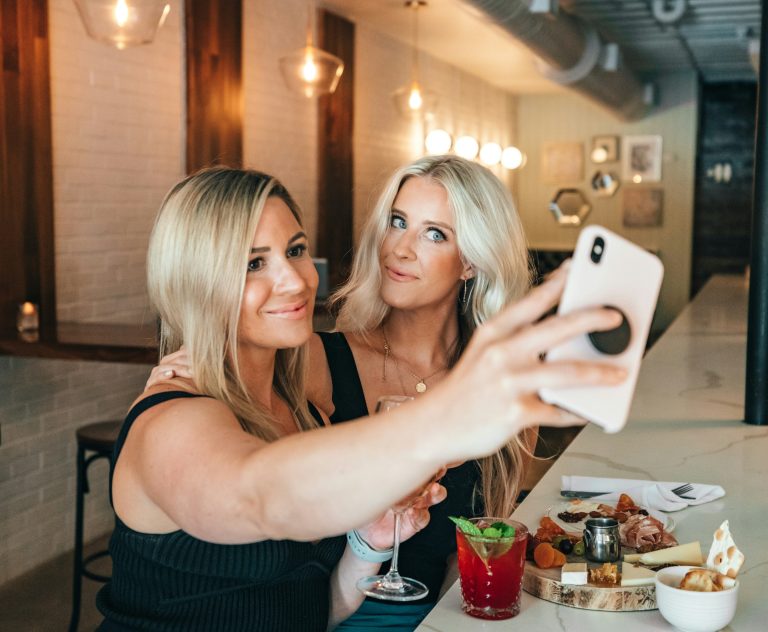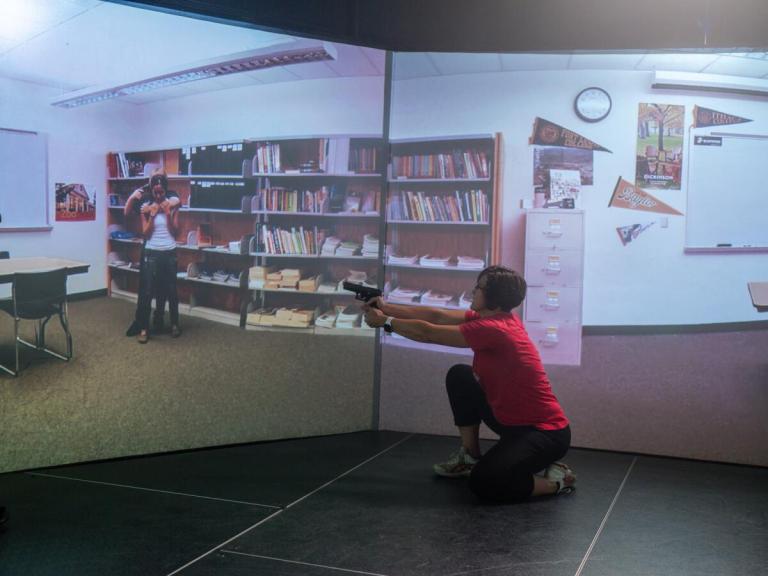
38 Steps To Becoming A More Well-Adjusted (And Therefore Happier) Person
Getting one extra hour of sleep a night is better for our happiness than a $60,000 raise

“Happiness (noun): the state of being happy.”
A lot of people are able to tell us what happiness is not. Not as many are able to tell us what happiness is, or what brings it about, or what we can do to get it. In my opinion, that’s because it’s an unachievable goal. “Happiness” is too elusive a construct to shoot for and win out. Without a clear definition, we don’t even know what we’re shooting for, so how the hell are we going to hit that target?
But I think there is something tangible that we can work towards, something for which the natural byproduct of its journey is real, true, authentic happiness, and that is to become well-adjusted. Happiness is so lofty a goal that we’ll likely never attain it so long as it’s what we strive for, but becoming well-adjusted is something we can legitimately tackle each day that we wake up, because as we move through a day, there are hundreds of opportunities to exercise it.
Well-adjusted might be best defined with examples:
Well-adjusted is when you see that someone has parked in such a way that they’re taking over some of a second spot and you recognize that it was likely an honest mistake, and that it certainly wasn’t personally intended to ruin your day.
Well-adjusted is when you give up your seat on the metro for the girl your age who looks tired.
Well-adjusted is when you see a piece of trash on the sidewalk and lean down to pick it up rather than stepping around it.
Well-adjusted is when you slow down to let someone with their blinker on move into your lane instead of speeding up (even if it’s a massive truck that’s going to annoyingly block your visibility – especially if it’s that massive truck).
Well-adjusted is when you listen so fully to what another person is saying that your smile starts in your eyes.
Being well-adjusted has just about everything to do with teaching yourself that the world is not about you.
That may seem awfully counterintuitive to bringing about personal happiness; if my happiness is about me, then how the hell is focusing less on me going to make me happy?
Happiness, at least in part, comes down to awareness and attention. You might think of this as “mindfulness.” Studies have shown that people who concentrate on and commit fully to a task in front of them report to be happier than those whose minds are wandering, thinking about the past or something yet to happen.
Where we focus our awareness and attention matters.
What we allow ourselves to be conscious of matters.
And being well-adjusted is the ultimate form of awareness and consciousness that you can strive for.
In my experience, people who are well-adjusted are calm and almost other-worldly. They are incandescent souls who seem to humbly and softly possess a secret. It should be comforting to you to learn that they were not always this way.
Nobody starts off well-adjusted. These are people who first gave so much to themselves that they made themselves able to give to others. These are people who have learned that kindness and compassion are the highest forms of intelligence. These are people who realize that to get out of your own head, you first have to walk through it.
If any of this sounds daunting, that’s because it is. Becoming well-adjusted is extremely challenging work. After all, you are at the center of every experience you’ve ever had, and to remove yourself from that center requires an awareness that most people simply don’t afford themselves. Becoming well-adjusted requires taking an unabashed look at your weaknesses, your goals and what you tend to put off for some elusive future rather than doing right now. Becoming well-adjusted requires recognizing that if growth leads to happiness, and if discomfort leads to growth, then we need to identify what makes us terrified – which requires honesty – and go set up camp there – which requires courage. Becoming well-adjusted is uncomfortable.
But it is also the most important work you can do each day. Because your happiness is important. Your happiness – I would go so far as to say – is your personal duty. And so it is your duty to become well-adjusted.
While “happiness” might be too elusive a thing to obtain or achieve, there are real ways to get there if you can readjust your goal to one of becoming well-adjusted. By tackling small tasks day by day, I think you can become one of those people with that secret. By tackling small tasks day by day, I think you can give yourself the awareness to see the world as magic.
Each of our personal journeys towards becoming well-adjusted is inherently different, as they depend largely on our individual strengths, weaknesses, value systems, experiences and ways we construct meaning from those experiences. The list below is by no means comprehensive. Maybe for you it’s more of a springboard to come up with small tasks of your own. The most important thing you can do is look at the areas of your life in which you feel something is missing or lacking. That’s where your most uncomfortable – and thus most profitable – work will lie. From there, it’s about designing small, tangible ways to push yourself outside of your comfort zone and then having the courage and integrity to act on it and stick with it – until eventually, you find yourself so in tune with yourself and so at peace with the way that you’re living that you’re able to start being alive for others.
Attachment:
What do you find yourself attached to – people, places, things? What might happen if you relied on them less? Which items in your life do you believe you “need”? How might you react if you lost one of them?
1. Go on trips alone: As social creatures, we all like to be around others, and thus, to varying degrees, we all struggle with solitude. Have the courage to take a trip alone – out of the country or even for a weekend to somewhere nearby – and spend some time finding comfort in your own company.
2. Give away something you love: There’s nothing inherently wrong with finding a sense of safety and security in some of the things we own; they have memories built into them. But there’s also an interesting challenge in allowing ourselves to give away an item that we value.
3. Meditate: There’s something about sitting quietly with only ourselves – our bodies, our thoughts – that’s incredibly intimidating. It’s the ultimate reduction of the outside world and confrontation of our own inner worlds. All we have to attach to in those moments is ourselves, and the rooms we may find ourselves walking into are not always pleasant. Going into them, though, is valuable work, because it’s only in going through your own head that you’ll ever be able to make your way out of it and allow yourself to reduce self-absorption.
4. Clean out your closet: Most of us could probably divide our closet into a few sections – the things we actually wear, the things we rarely wear, the things that still have tags on them, the things that we think may come in handy in the future. Ask yourself honestly why you hold onto some of the things in the latter categories, and consider giving what you don’t use away. You might find that this creates space in your life in more ways than one.
Openness:
How open are you to new experiences? New people in your life? How set have you become in your ways or complacent in everyday life? When was the last time you tried something you never had before? How might staying open in small ways in your life make you feel open or more empathetic towards larger, more important ideas or beliefs?
1. Approach strangers: As humans, we share the desire to connect with others, and yet many of us are cautious about striking up conversations with those who we don’t know. Walk up to a stranger at the beach or in the grocery store or at the library. Compliment someone. Remark on a common interest. There may be a new friendship there, or at the very least, a quiet validation of the fact that we are all more similar and connected than we might tend to think as we go through our days in our own heads.
2. Try a new menu item or a new recipe: We find what we love, we stick with it. I’ve gotten the same Chipotle burrito for the last decade. Nothing inherently wrong with that, but every so often, push your edge a little and try something new. You may like it even more than your routine go-to, and you may find yourself willing to try new things in other areas of your life too.
3. Try a new restaurant: What might be even better than trying something new at Chipotle would be to try something other than Chipotle. I live in Southern California where there’s Mexican food on every corner; it’s a downright crime I go to Chipotle at all. Next time you’re thinking about where to go eat and run through your usual options, consider checking out a place you’ve never been before.
4. Smile – often: Smiling is easy. It also makes us feel incredibly good – the muscles in our face associated with smiling stimulate a dopamine response in our brains. As if that’s not enough, smiling makes others feel incredibly good too. Throw a genuine grin to a stranger while you’re walking down the street – I’d be surprised if they don’t smile back.
5. Get a little lost: Do you tend to drive home from work the same way every day? Maybe there’s only one route available to you, but it’s more likely that that’s not the case. Take a different route. Be open to the possibility that there’s a way that’s faster or more beautiful or just more fun – whatever it is that you most are seeking.
6. Share yourself honestly with others: We tend to be protective of our most shameful memories. We guard them, because we don’t like to be vulnerable. But when we allow ourselves to be open with others about the things that are most uncomfortable for us, we allow for a shared understanding of the world and thus real connection.
Relationships:
How do you tend to treat the people in your life? Do you see your relationships more as transactions – “what I can take from you?” – or as built on love and sharing? How do you show people that you value them? Do you spend most of your time connecting from behind a screen or in person?
1. Write love letters: Write letters to all the people you care about. Tell them why you were thinking of them and what about them you love. People like to feel valued, and there’s something about giving in this way that makes us feel good too.
2. Hug more: And for at least six seconds, which is the amount of time it takes for oxytocin – the bonding hormone – to start releasing. A lot of us are fairly reserved about physical touch, but it’s incredibly important to our wellbeing.
3. Give up social media: For a week, for a month – just to see how it feels. Maybe unplugging will encourage you to spend more face-to-face time with others. Maybe it’ll call attention to how much of your life you spend behind the screen.
4. Call your family: And when you do, really listen to what they have to say. Your relationships with your parents or siblings or relatives might be ones that you take for granted more so than others, such that when your mom starts going on about all the different errands she ran today, you’ve all but tuned out. Stay present, really hear them: this conversation is a luxury that one day will no longer exist.
5. Show up: Try to make it to the things that you’re invited to, even if it’s just for a little bit. Show people that you value them and that you’re grateful that they want to include you in their lives.
6. Listen: Listen more than you interrupt, speak or share things about yourself or your life. Be present for others. Try not to be so focused on what you can offer in a conversation or how you want to respond, but rather, what the other person has to say.
Work and Learning:
Do you find that you’re more intrinsically or extrinsically motivated in your line of work? What do you do to learn and build on your knowledge, for no other reason than your own interest? How do you react when you don’t know something? How comfortable are you with exploring challenging problems?
1. Tackle a large, difficult goal: Is there something that you’ve been wanting to do for a while but have put off because it feels so foreboding? Maybe you want to write a book, record an entire album or start a cooking blog. Challenge yourself to tackle it over a finite, short period of time – like a month. Part of what’s been holding you back up until now is probably at least partially a fear of outcomes: “will what you create be any good?” When you put yourself on an essentially ridiculous deadline, you can reduce your concern with outcomes and prioritize the fact that you’re simply sitting down each day and trying – which is a hell of a lot more fun anyway.
2. Try a new hobby: Learn how to do something entirely new that’s outside of your comfort zone. In expanding your horizons, you’ll allow yourself to consider the merit of something you hadn’t before, and you’ll afford yourself a serious sense of productivity and accomplishment for having operated outside the confines of your usual abilities.
3. Read more: No matter how much you’re reading, there’s always more available to you. Read as much and as often as possible. Whether it’s fiction, a textbook or the news, it’ll get you out of your head, reducing self-centeredness and allowing for a consideration that other worldviews have equitable merit to your own.
4. Get comfortable saying “I don’t know”: Admit when you don’t know something. Be comfortable with your discomfort rather than looking for those easy escape hatches that allow us to exit uncomfortable situations “unscathed.” Everything you know you once learned from someone or something else – and the same goes for everyone else around you. There’s no shame in not knowing something, but what will bring about shame is feeling as if you have to pretend that you do.
Fun:
What do you do in your life for fun? How much time do you give yourself purely to have fun? How do you tend to feel about fun – is it important?; is it time wasted that could otherwise be spent productively? When was the last time you did something sort of ridiculous, just because it seemed exciting?
1. Color: On a random weeknight after work, go buy a coloring book and some crayons and get after it. This should be a pretty great release, because it’s something creative and pleasurable that doesn’t have high stakes built around it. It’s purely for you, for fun, no judgment or expectations, no required outcome. As adults, how much of our lives can we say that about otherwise?
2. Watch sunsets: Cheesy as it may sound, watching sunsets packs a nice double punch – it falls under the category of fun (it’s certainly not work), and it gives your brain a nice reset, allowing you to slow down and think more expansively beyond the petty frustrations or worries of your day to the fact that you’re alive in the present moment. Make time to shift into this space of awareness and gratitude as often as you can by seeking out those daily situations that produce a real sense of awe.
3. Dance: Anywhere. At home, in your room alone, in the car. The more ridiculous you feel, the more you’re doing this right. Ditto for singing.
4. Tackle your movie list (TV list; reading list): As adults, we seem to make a lot of lists. If you’re like me, you might realize that you’ve even started to make lists for things that should just be fun. I have an ongoing movie list that I tend to neglect in favor of watching Silver Linings Playbook for the 18th time, and half the time that list hangs over me like dead weight. Whenever I do watch one of the movies off it though – and when it turns out to be really good – I feel excited and energized to keep trying new things and be more open in other ways in my life.
Giving:
What do you do to help others? What do you do to help yourself? How often do you find yourself giving to others?; giving to yourself? What does it feel like when you give rather than take? How do others seem to react to being given something?
1. Volunteer: Not because you have to, but just because it feels good to do something for others. Volunteering can teach you to approach your life more from a place of “enough” and less of “I need” or “I want,” because it helps to reset what’s important and keep your value system in check.
2. Give presents for no reason: Make or buy a present for someone you care about, for no particular reason. A good present doesn’t have to be anything big or expensive. It just has to be personal.
3. Do unexpected favors for others: Buy your roommate milk when she’s run out; do the dishes for your parents; fill up your sister’s gas tank. These small, unexpected favors may mean the world to the person you’re doing them for, and often times, they really cost us very little.
4. Pay it forward: Buy the coffee for the person behind you; give a homeless person the banana from your lunch bag; leave quarters at the laundromat for the next person; clean your beach; leave a thank you note for your mail carrier. There are small ways you can pay it forward and give kindness every day – even without money – and the more you spread this positivity, the more it’ll come back to you.
Health:
In what ways do you show yourself that you care about your health? How do you tend to eat on a daily basis? Do you exercise often? Do you see your body more for its imperfections or for all the ways it carries you so effortlessly through every day of your life?
1. Nix the sugar: Sugar hits our neural dopamine pathways just like a drug – and like a drug, it falsely makes us feel better at first and then makes us need more to keep it up. For a month, try getting rid of all refined sugar in your diet. Notice what your energy levels, mental clarity and sense of joy are like.
2. Try a new form of exercise: If you’ve found a form of exercise that you do, not because you hate your body, but because you love how it makes you feel, by all means, don’t change a thing. But if you’ve struggled to find working out satisfying, try something else until you find what works for you. The right kind of exercise will make you want to show up every day for the right reasons (and, whether your body changes or not, tends to make you worry less about the size of your thighs).
3. Take a walk: What might it feel like if you set aside 20 minutes every evening for just a month to take a walk in your neighborhood? What would the simple act of getting outside and moving your body do for your health and happiness?
Positivity:
Do you tend to look for silver linings and see life as beautiful more often than not? Or do you tend to take on a more cynical stance about the world and believe balance to be impossible? Do you struggle to find meaning in your daily life or do you go to sleep at night excited for the next day? Do you groan at Monday and live for Friday?
1. Record your daily complaints: I think a complaint is an objective statement about reality made self-centered and personal. It automatically assumes that you believe that you were treated unfairly by the world in X situation and that you deserved something different. Realistically, the world isn’t out to get you, and the things you tend to complain about probably aren’t so bad in the scheme of things. Every day for a month, keep track of how many times you complain each day. 50? 200? When you give yourself the awareness to see this number so tangibly, you allow yourself to consider what you tend to let bother you and to think more critically about how you want to use your voice.
2. Keep a gratitude journal: Get into the habit of writing down, saying out loud or sharing with a friend three things that you’re grateful for and one thing that was wonderful about your day every night before you go to bed. Since our brains tend to naturally slide toward and affix to the negative, this keeps us searching for the positive and seeing the good in the world before the bad, and that helps everyone.
Self-Love:
In what ways do you show yourself love and respect? In what ways do you fall short of this? How often do you let yourself be kind to yourself? Do you tend to feel guilty over acts of kindness for yourself or do you tend to see the necessity in treating yourself well?
1. Make a small splurge: Splurge on something that you’ve been wanting for a long time. Maybe that’s a framed piece of art, a set of speakers, a new surfboard or something as small as a book. While money can’t totally bring happiness, when spent well and primarily on experiences, it can certainly contribute.
2. Get a good night’s sleep: Get eight hours of sleep a night, and make this a priority in your life. Studies have shown that most people don’t get enough sleep, and that getting one extra hour of sleep a night is better for our happiness than a $60,000 raise.
3. Get rid of what you don’t use: That thing you feel guilty about buying because you never use it and thought you would, and now only hold onto because you feel guilty? – It’s okay. Give yourself enough compassion to know that, and then give yourself the freedom to get rid of it.
4. Set an intention for your day: Set an intention for your day when you wake up in the morning. Do you want to be more patient? More forgiving? Do you want to have more fun or be more playful? Maybe it’s to be where your feet are, or to be unafraid of outcomes, or to have the courage to ask questions rather than make assumptions. No matter the intention, take a minute or two to just sit and breathe and think about the thing you want to make the theme of your day.
5. Find something special about you: “Find something special where others don’t see anything unusual,” my yoga teacher said to us a few weeks ago. What’s something about you that’s special? Every morning when you wake up (and if you’re too rushed in the morning for this, how about doing it while you’re brushing your teeth?), think about or write down three things that are special about you. The more you recognize what’s special about you, the more positive you’ll be, and the more able you’ll be to recognize special qualities in others. When we give ourselves love and compassion, we make ourselves able to give others love and compassion, and that’s a really beautiful thing.![]()











